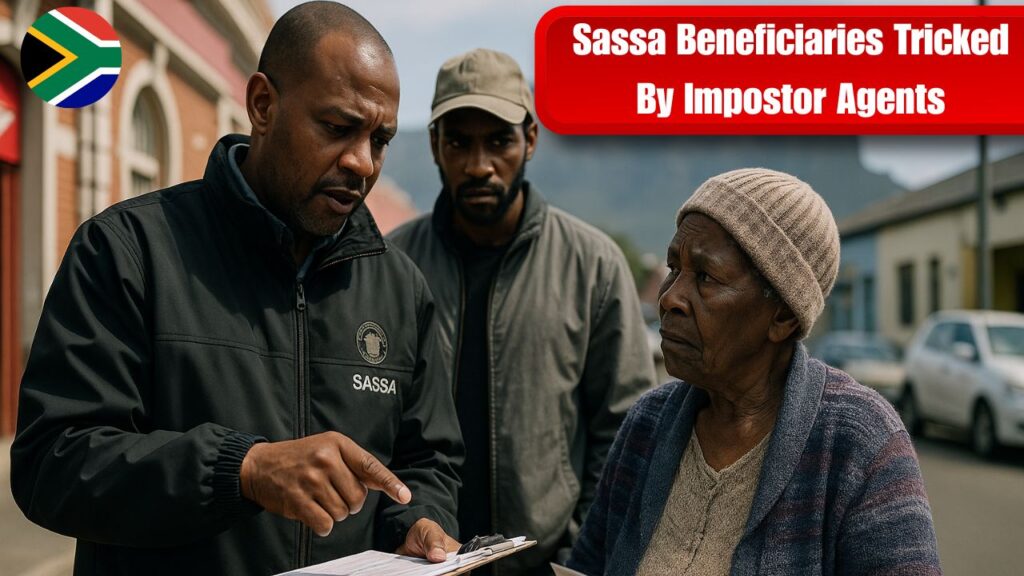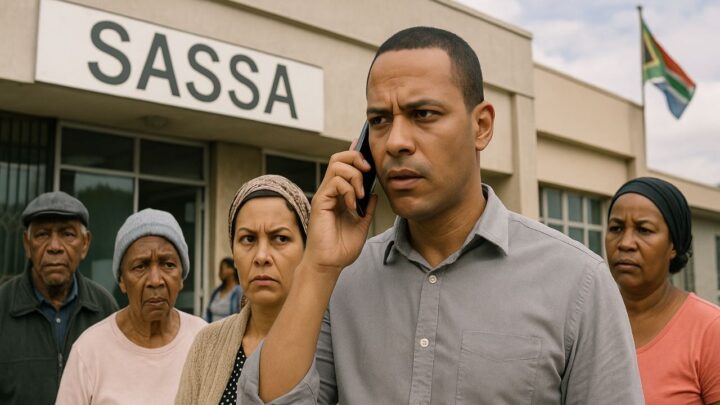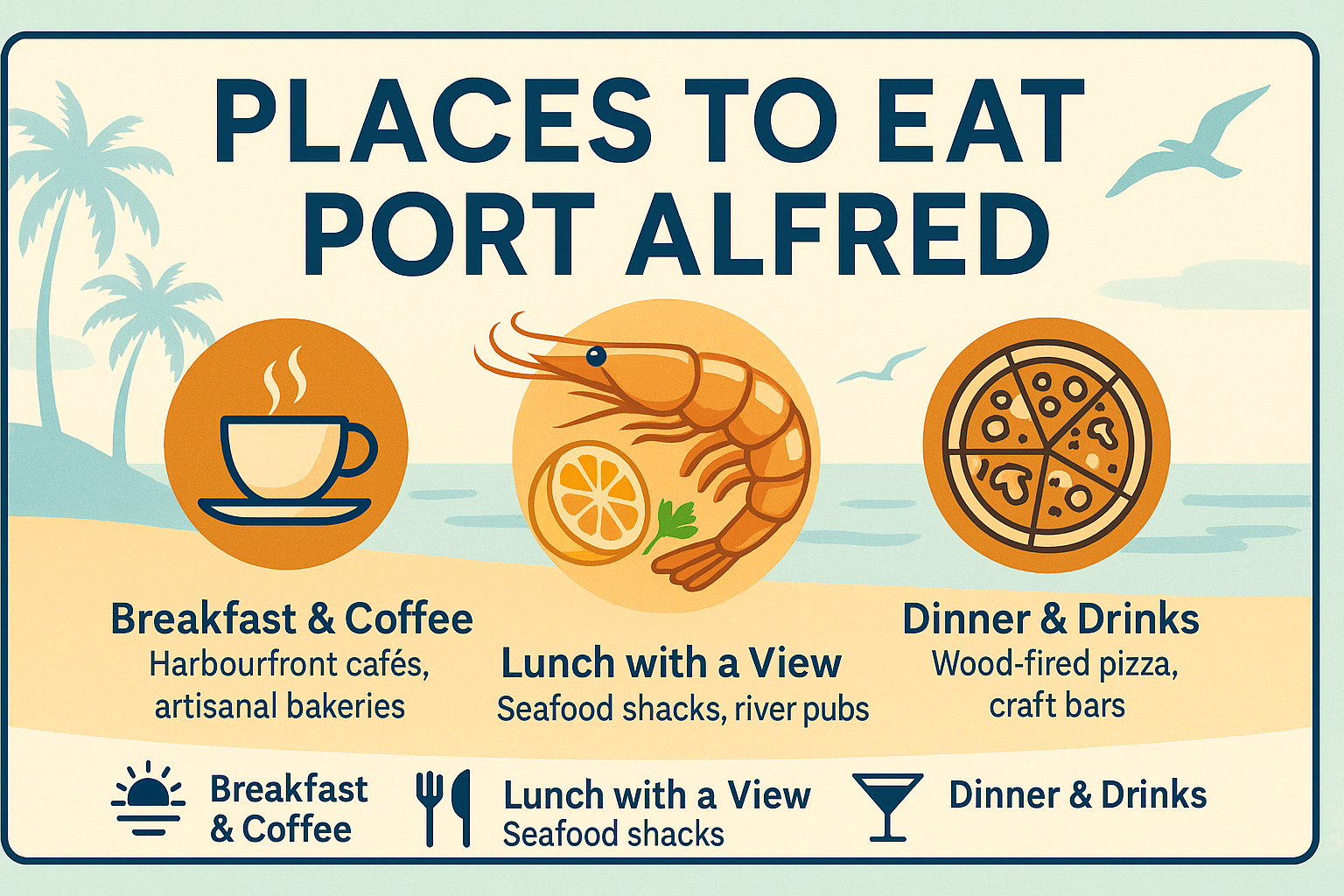Scammers in South Africa are increasingly targeting SASSA beneficiaries by pretending to be government officials. These fraudsters contact grant recipients through calls, SMS, or fake social media pages, promising to “update” their details or “speed up” payments. In reality, they are trying to steal personal information, grant card details, or PINs. SASSA has warned the public not to share any personal data or bank details with anyone claiming to be an official. Beneficiaries must always verify communication directly through the official SASSA website or visit a nearby SASSA office.

How Scammers Operate and Common Tactics Used Against SASSA Beneficiaries
Scammers use clever tactics to trick SASSA grant beneficiaries, often posing as representatives who can “fix” payment delays or “re-register” accounts. They may send fake messages requesting ID numbers, bank account information, or one-time PINs. In some cases, they even create counterfeit SASSA cards or websites that look real. The main goal is to collect sensitive information to access beneficiaries’ funds. SASSA officials never ask for personal details over the phone or WhatsApp, and beneficiaries should report any suspicious message immediately to the local police or SASSA hotline.
Read Also : New RTO Law Starts 10 October 2025 in South Africa – Higher Fines, Tougher Enforcement
Official Warnings and Preventive Measures by the South African Social Security Agency (SASSA)
SASSA has repeatedly issued public alerts reminding citizens to be cautious. The agency emphasizes that all official communication is done through formal channels — never through private social media or personal emails. Beneficiaries are urged to protect their personal data and avoid clicking on suspicious links claiming to be from SASSA. Additionally, SASSA is working with law enforcement to track down individuals and groups behind these scams. Beneficiaries can verify legitimate information directly through the SASSA website, official offices, or toll-free helpline 0800 60 10 11.

Steps SASSA Beneficiaries Can Take to Stay Safe and Report Fraud
To stay safe, SASSA beneficiaries should follow a few key steps:
- Never share your SASSA card PIN, ID number, or OTP with anyone.
- Ignore any SMS, email, or call that requests personal information.
- Check all payment updates on the official SASSA channels only.
- Report scams to the police or to SASSA directly through official contact numbers.
- Encourage friends and family, especially elderly beneficiaries, to stay alert against fake messages.
By following these steps, beneficiaries can protect themselves from financial loss and identity theft.
Read Also : SASSA Raises Pension to R4,500 Plus DA – Payment Calendar for 7.8 Million Pensioners
Table: Common SASSA Scams and How to Avoid Them
| Type of Scam | Method Used | What Scammers Want | How to Stay Safe |
|---|---|---|---|
| Fake SMS or Calls | Claiming grant reactivation or payment update | Personal and banking information | Never share personal details over the phone |
| Social Media Scams | Fake SASSA pages promising payment boosts | Login or ID details | Verify accounts via official SASSA profiles |
| Phishing Websites | Lookalike SASSA websites asking for info | Card and PIN data | Use official domain: www.sassa.gov.za |
| Fake Officials in Person | Visiting homes pretending to “help” | ID and SASSA card numbers | Ask for ID verification and contact SASSA office |
FAQs on SASSA Scam Warnings and Safety
1. How can I verify if a SASSA message is real?
Check directly on SASSA’s official website or call their helpline before responding.
2. What should I do if I shared my details with a scammer?
Contact your bank immediately and report the fraud to SASSA and the police.
3. Does SASSA ever ask for banking details over WhatsApp?
No, SASSA never requests personal or banking details through WhatsApp or SMS.
4. Where can I report fake SASSA pages or scams?
Report any fraudulent pages to SASSA’s official email or visit your nearest SASSA office.




